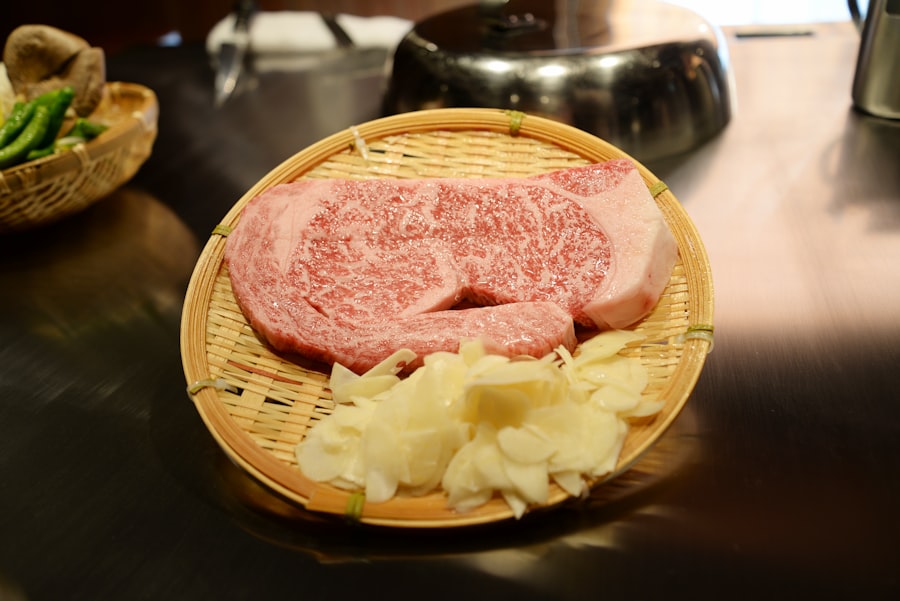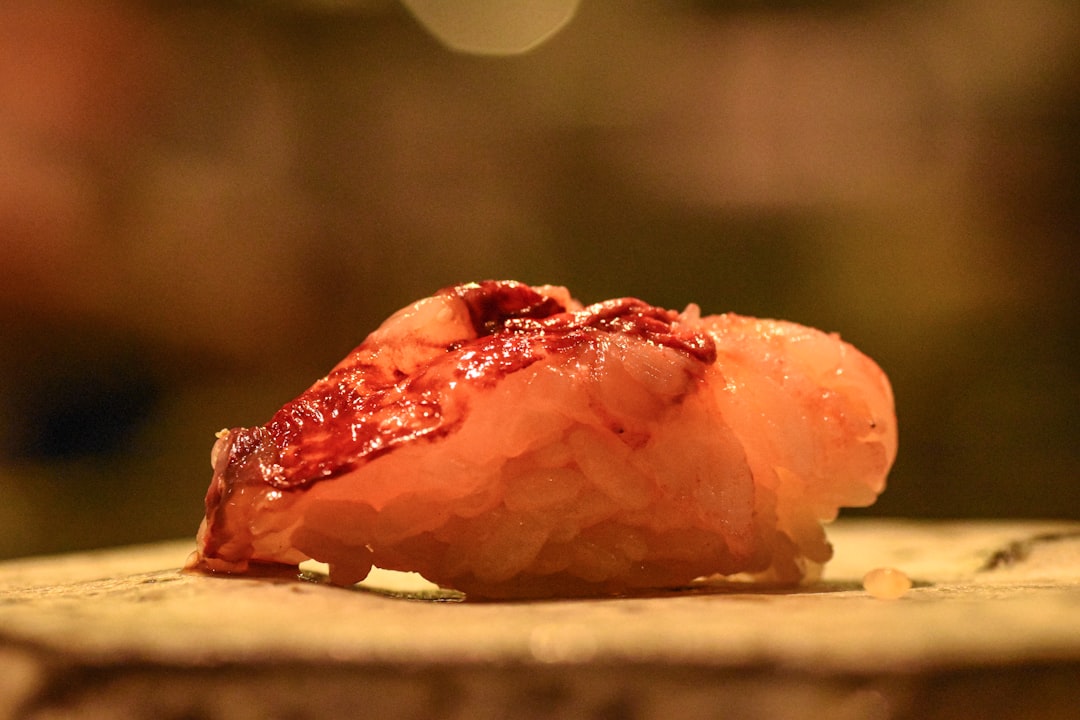Fatty liver disease, also known as hepatic steatosis, is a condition characterized by the accumulation of excess fat in liver cells. This condition can arise from various factors, including obesity, excessive alcohol consumption, and certain medications. You may find it surprising that fatty liver disease can affect individuals who do not consume alcohol, leading to a classification known as non-alcoholic fatty liver disease (NAFLD).
Understanding the underlying causes and risk factors is crucial for managing this condition effectively. As you delve deeper into the complexities of fatty liver disease, you may discover that it often goes unnoticed until it progresses to more severe stages, such as non-alcoholic steatohepatitis (NASH) or cirrhosis.
Recognizing these signs early on can be pivotal in preventing further complications. By educating yourself about fatty liver disease, you empower yourself to take proactive steps toward better liver health.
Key Takeaways
- Fatty liver disease is a condition where fat accumulates in the liver, leading to inflammation and potential liver damage.
- A diet rich in fruits, vegetables, whole grains, and lean proteins can help manage fatty liver disease.
- Herbal remedies such as milk thistle and dandelion root may support liver health and reduce inflammation.
- Regular exercise, including both aerobic and resistance training, can improve liver function and reduce fat in the liver.
- Stress management techniques such as meditation, yoga, and deep breathing can help reduce inflammation and improve liver health.
Diet and Nutrition for Fatty Liver
When it comes to managing fatty liver disease, diet and nutrition play a vital role. You may want to consider adopting a balanced diet that emphasizes whole foods while minimizing processed options. Incorporating plenty of fruits, vegetables, whole grains, and lean proteins can help support liver function and reduce fat accumulation.
Foods rich in antioxidants, such as berries and leafy greens, can also aid in combating oxidative stress, which is often associated with liver damage. In addition to focusing on what to eat, it’s equally important to pay attention to what you should avoid. High-sugar foods, refined carbohydrates, and saturated fats can exacerbate fatty liver conditions.
You might find it beneficial to limit your intake of sugary beverages and snacks while opting for healthier alternatives like water or herbal teas. By making these dietary adjustments, you can create a supportive environment for your liver to heal and function optimally.
Herbal Remedies for Fatty Liver

Exploring herbal remedies can be an intriguing avenue for managing fatty liver disease. Certain herbs have been traditionally used for their potential liver-supportive properties. For instance, milk thistle is renowned for its active compound, silymarin, which may help protect liver cells from damage and promote regeneration.
You might consider incorporating milk thistle supplements into your routine after consulting with a healthcare professional. Another herb worth exploring is dandelion root, which has been used in herbal medicine for its detoxifying effects. Dandelion may help stimulate bile production, aiding in fat digestion and absorption.
As you explore these herbal options, remember that individual responses can vary, so it’s essential to monitor how your body reacts and consult with a healthcare provider before starting any new supplement regimen.
Exercise and Physical Activity for Fatty Liver
| Exercise and Physical Activity for Fatty Liver |
|---|
| 1. Aerobic Exercise |
| 2. Resistance Training |
| 3. Duration: 150 minutes per week |
| 4. Intensity: Moderate to vigorous |
| 5. Frequency: 5 times per week |
Engaging in regular physical activity is one of the most effective strategies for managing fatty liver disease. You may find that incorporating both aerobic exercises and strength training into your routine can yield significant benefits. Aerobic activities like walking, jogging, or cycling can help burn excess fat and improve insulin sensitivity, which is crucial for liver health.
Aim for at least 150 minutes of moderate-intensity exercise each week to support your overall well-being. Strength training is equally important as it helps build muscle mass, which can enhance your metabolism and promote fat loss. You might consider incorporating resistance exercises two to three times a week to complement your aerobic workouts.
As you embark on this fitness journey, remember that consistency is key; even small changes in your activity level can lead to substantial improvements in your liver health over time.
Stress Management and Fatty Liver
Stress management is often an overlooked aspect of maintaining liver health. Chronic stress can lead to hormonal imbalances that may exacerbate fatty liver disease. You might find it beneficial to explore various stress-reduction techniques such as meditation, yoga, or deep-breathing exercises.
These practices not only promote relaxation but also help improve your overall mental well-being. Incorporating mindfulness into your daily routine can also be a powerful tool for managing stress. By focusing on the present moment and cultivating awareness of your thoughts and feelings, you can reduce anxiety and promote a sense of calm.
As you develop these skills, you may notice a positive impact on your liver health as well as your overall quality of life.
Detoxification and Fatty Liver

Detoxification is often touted as a way to support liver health, but it’s essential to approach this concept with caution.
You might consider adopting a detox-friendly diet that emphasizes hydration and nutrient-dense foods while minimizing processed items and alcohol consumption.
In addition to dietary changes, incorporating practices such as drinking plenty of water and consuming herbal teas can support your body’s natural detoxification processes. You may also want to explore gentle detox methods like dry brushing or Epsom salt baths to promote circulation and lymphatic drainage. Remember that while detoxification can be beneficial, it should complement a holistic approach to managing fatty liver disease rather than serve as a standalone solution.
Acupuncture and Fatty Liver
Acupuncture is an ancient practice rooted in Traditional Chinese Medicine that may offer benefits for those dealing with fatty liver disease. By stimulating specific points on the body, acupuncture aims to restore balance and promote overall health. You might find that regular acupuncture sessions help alleviate stress and improve your body’s energy flow, which could positively impact your liver function.
Research suggests that acupuncture may also help reduce inflammation and improve metabolic parameters associated with fatty liver disease. If you’re considering this alternative therapy, seek out a qualified practitioner who specializes in treating liver conditions. As you explore acupuncture as part of your wellness journey, remain open-minded about its potential benefits while continuing to prioritize other lifestyle changes.
Homeopathy and Fatty Liver
Homeopathy offers another alternative approach to managing fatty liver disease by utilizing highly diluted substances aimed at stimulating the body’s healing processes. You might find that certain homeopathic remedies are tailored specifically for liver health and can complement your overall treatment plan. Remedies such as Carduus marianus (milk thistle) or Chelidonium majus (greater celandine) are often considered for their potential benefits in supporting liver function.
As with any alternative therapy, it’s crucial to consult with a qualified homeopath who can guide you through the selection of appropriate remedies based on your individual symptoms and constitution. While homeopathy may not replace conventional medical treatments, it can serve as a valuable adjunct in your journey toward better liver health.
Aromatherapy and Fatty Liver
Aromatherapy utilizes essential oils derived from plants to promote physical and emotional well-being. You might find that certain essential oils have properties that support liver health and aid in detoxification. For instance, oils like lemon or grapefruit are known for their uplifting effects and potential ability to stimulate liver function.
Incorporating aromatherapy into your daily routine can be as simple as diffusing essential oils in your living space or adding them to bathwater for a relaxing soak. You may also consider topical applications with carrier oils; however, always perform a patch test first to ensure there are no adverse reactions. As you explore the world of aromatherapy, remember that it should complement other lifestyle changes rather than serve as a sole treatment.
Mindfulness and Fatty Liver
Mindfulness practices can significantly enhance your approach to managing fatty liver disease by fostering a deeper connection between your mind and body. Engaging in mindfulness meditation allows you to cultivate awareness of your thoughts and feelings without judgment. This practice can help reduce stress levels and promote emotional resilience—both of which are essential for maintaining overall health.
You might also consider incorporating mindful eating into your routine by paying attention to the flavors, textures, and sensations of each bite during meals. This practice not only enhances your relationship with food but also encourages healthier eating habits that support liver function. By integrating mindfulness into various aspects of your life, you create a holistic approach that nurtures both your mental well-being and physical health.
Integrating Natural Remedies for Fatty Liver
In conclusion, managing fatty liver disease requires a multifaceted approach that encompasses diet, exercise, stress management, and various natural remedies. By understanding the condition better and exploring options such as herbal remedies, acupuncture, homeopathy, aromatherapy, and mindfulness practices, you empower yourself to take charge of your health journey. As you integrate these natural remedies into your lifestyle, remember that consistency is key; small changes can lead to significant improvements over time.
Always consult with healthcare professionals before making any major changes or starting new treatments to ensure they align with your individual needs. By taking proactive steps toward better liver health through natural means, you pave the way for a healthier future filled with vitality and well-being.
If you’re interested in exploring natural ways to heal a fatty liver, you might find valuable insights in related articles that discuss holistic approaches to liver health. For instance, an article on Explore Senior Health delves into various lifestyle changes and dietary adjustments that can support liver function and promote overall well-being. This resource provides a comprehensive look at how incorporating certain foods, regular exercise, and mindful habits can contribute to liver health, offering a natural pathway to managing and potentially reversing fatty liver disease.
WATCH THIS! 🧃The 60-Year Liver Lie: Why Your “Healthy” Juice Is Destroying Your Liver
FAQs
What is fatty liver disease?
Fatty liver disease is a condition where fat accumulates in the liver, leading to inflammation and potential damage to the liver cells. This can lead to complications such as liver scarring (cirrhosis) and liver failure.
What are the natural ways to heal fatty liver?
Some natural ways to heal fatty liver include maintaining a healthy diet, exercising regularly, managing weight, avoiding alcohol, and consuming certain supplements and herbs that have been shown to support liver health.
What foods should be included in a diet to heal fatty liver?
A diet to heal fatty liver should include plenty of fruits, vegetables, whole grains, lean proteins, and healthy fats. Foods rich in antioxidants, such as berries and leafy greens, can also be beneficial for liver health.
What foods should be avoided in a diet to heal fatty liver?
Foods to avoid in a diet to heal fatty liver include sugary foods and beverages, processed foods, fried foods, and excessive amounts of red meat. Limiting intake of high-fructose corn syrup and trans fats is also important.
How does exercise help in healing fatty liver?
Regular exercise can help in healing fatty liver by promoting weight loss, improving insulin sensitivity, and reducing liver fat. Aerobic exercises, such as walking or cycling, and resistance training have been shown to be beneficial for liver health.
Are there any supplements or herbs that can help in healing fatty liver?
Certain supplements and herbs, such as milk thistle, turmeric, and dandelion root, have been studied for their potential benefits in supporting liver health and healing fatty liver. However, it’s important to consult with a healthcare professional before taking any supplements.
Can fatty liver disease be reversed naturally?
With lifestyle changes such as a healthy diet, regular exercise, and weight management, fatty liver disease can be reversed naturally in some cases. However, individual results may vary, and it’s important to work with a healthcare provider to develop a personalized treatment plan.
